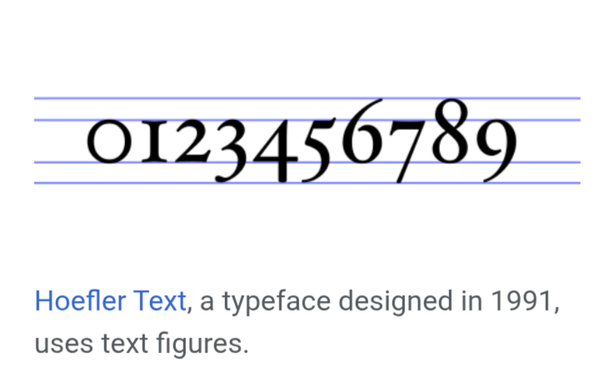'On November 28th, 2012, Randall Munroe published an xkcd comic that was a calendar in which the size of each date was proportional to how often each date is referenced by its ordinal name (…) "In months other than September, the 11th is mentioned substantially less often than any other date. It's been that way since long before 9/11 and I have no idea why." After digging into the raw data, I believe I have figured out why.'
@texttheater this is awesome data sleuthing and a great writeup, thanks for introducing me to this.
It is also the sort of thing where I would really love quote posts, btw, to translate the awesomeness of serendipitous gold nuggets in my timeline to different unsuspecting audiences.
And it is also, also a reminder that blogging is hella cool, even if it is infrequent.
@texttheater The author says the numeral 1 was often confused for lookalikes by Google's OCR, but it goes deeper than that: traditional typewriters rarely had dedicated 0 or 1 keys. Operators used uppercase oh and lowercase ell instead. So, at least in some cases, the text on the original page really was "January llth"!
(I'm not aware of this ever being common practice for printers, even if they ran out of digits, but I wouldn't be surprised either way.)
@texttheater
Salvador Allende ?
The CIA backed military coup on
Many years ago I was involved in a system which did OCR of Giros (= European Postal Cheques).
Our OCR-wizards (and they were!) showed us that handwritten '4' came in several dialects in Denmark.
OCR is a much more complex subject than most people imagine.
Fascinating analysis of why the 11th of the month has less representation is print.
The NGRAM database by Google catalogs the usage of words in print and books from 1800's to 2008. But why would the 11th of the months be under represented? Dig in to find out!
@texttheater awesome story! My two take always: The more complex/blackbox an algorithm, the harder it is to resolve (potentially harmful) biases. Legible fonts like `Atkinson Hyperlegible Next` could have prevented this.
@hembrow @texttheater you can be forgiven for not accounting for the possibility of systems that started existing only 50 years later.
But considered this: Alan Turing was already working on character recognition software on the Manchester Mk I
@texttheater this is a great review on database data quality. I am still unconvinced of xkcd's interpretation of the calendar interpretation of September 21st which must be considered WAYYY larger
I mean who doesn't remember the 21st night of September 🎶🎹
@texttheater
I wonder whether the nth interpretations of 11th might have been due to shorter 1 characters used in fonts that had so-called Text Figures, where the 0, 1 and 2 were actually shorter than other figures, which had ascendera and descenders. In doing so, the two 1s would have been about the same height as an n.
Wikipedia has more to say, and despite the example below being from a more recent font, Text Figures were popular much earlier.
https://en.m.wikipedia.org/wiki/Text_figures

